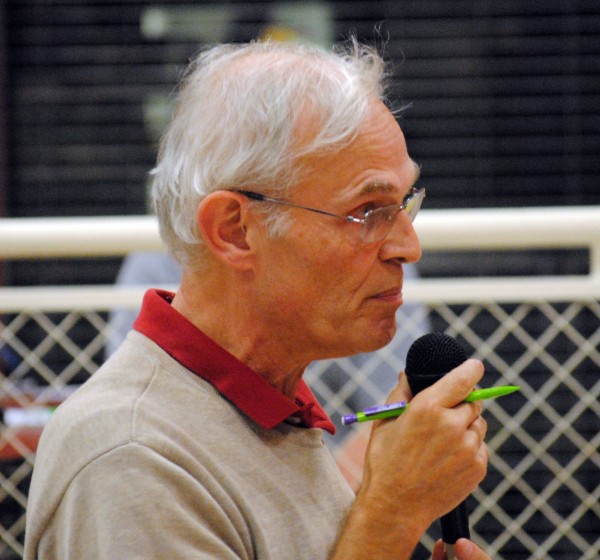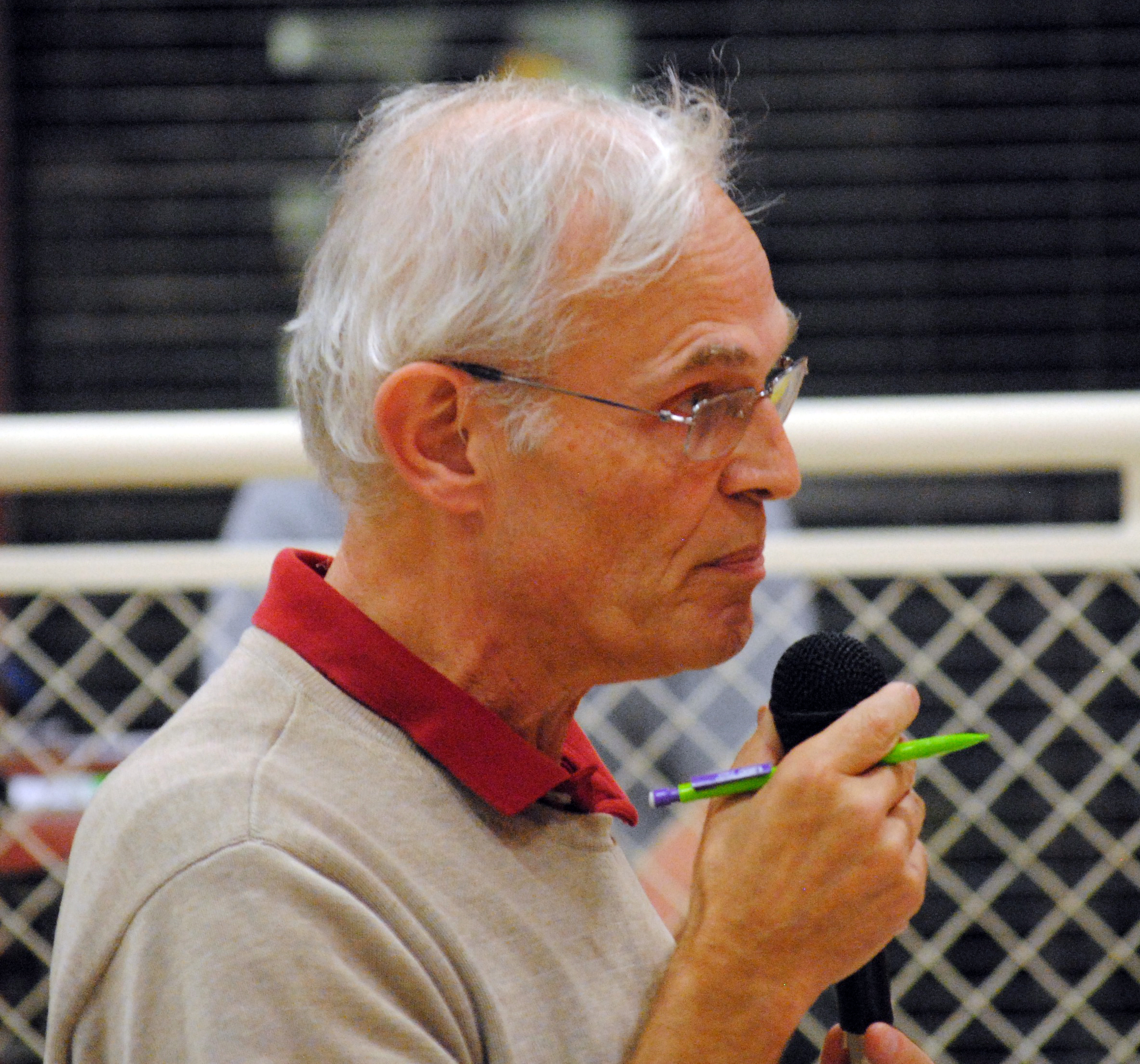
At the University of Rhode Island’s 19th annual Diversity Week, Peter Nightingale, professor of physics at URI, and climate activist, challenged students’ perspectives on climate change and offered a call to action in order to address environmental racism. The event, “Race and the Environmental Justice Movement,” was held at the Multicultural Student Services Center.
Nightingale began the event with a stark warning: in order to avoid catastrophic climate change, we must reduce greenhouse emissions globally by 7 percent. The U.S. is home to a fraction of the world’s population, it emits 25 percent of global greenhouse gasses. Even though the U.S. is greatly responsible for climate change, it will be the poor of the world, nations with less developed infrastructure, that will bear the consequences.
Nightingale referenced Robert Bullard’s work, “Dumping in Dixie”, in the presentation:
The environmental movement in the United States emerged with agendas that focused on such areas as wilderness and wildlife preservation, resource conservation, pollution abatement, and population control. It was supported primarily by middle- and upper-middle-class whites. Although concern about the environment cuts across racial and class lines, environmental activism has been most pronounced among individuals who have above-average education, greater access to economic resources, and a greater sense of personal efficacy.”
“I’m one of those people who are in a position of privilege,” said Nightingale. It was Nightingale’s privilege that allowed him to be treated politely by police when resisting fracked gas expansion. “Suppose I were half my age, and my color is a little bit darker – would they be equally polite, and nice? No – absolutely not.”
In the fight for the environment, there are the following stakeholders: the environmentalists, the social justice advocates, and the neo-liberal boosters, who, “have as their chief concerns maximizing profits, industrial expansion, economic stability, laissez-faire operation, and deregulation,” said Nightingale, quoting Bullard.
“If you follow the economic discussion in Rhode Island,” continued Nightingale, “all you hear people say is ‘all we need is more jobs, more jobs’ – but when you scrape away the rhetoric, a lot of people of color and poor minorities are being divided among themselves… the elites never mention that it’s all about their profits, about busting unions, about exploiting people – and this is one of the problems we have to deal with.”
For instance, Governor Gina Raimondo stated, “I am committed to moving ahead with cost-effective, regional energy infrastructure projects—including expansion of natural gas capacity—that will improve our business climate and create new opportunities for Ocean State workers.”
Nightingale also referred to the President’s Climate Action Plan as the “President’s Business Climate Action Plan” – stating that it is based on the interests of Wall Street, not in science. We are moving away from fossil fuels, and going towards natural gas, essentially replacing carbon dioxide with methane, a gas that is much more potent than carbon dioxide. “Let that sink in – that’s what [Senator] Sheldon Whitehouse is saying we should do and it’s a bad plan”
Not only are we “Dumping in Dixie,” but we are dumping in Providence, we are dumping in Burrillville, and we are dumping globally. From National Grid’s proposed LNG liquefaction facility to the proposed gas-fired power plant in Burrillville, the environment and the people are under assault says Nightingale.
“Who are the people that live next to I-95 in Providence… the people are about to thrown out of their houses… their skin tone is a couple of shades darker than mine.” Nightingale directed attendees to the Environmental Protection Agency’s Environmental Justice website, which shows several environmental and demographic indicators regarding pollution. In the presentation, Nightingale showcased the current indicators for the proposed LNG liquefaction facility at Fields Point location in Providence, and compared the indicators to those of East Greenwich.
Nightingale continued by critiquing Cap and Trade. “We are taking a serious problem [and] financializing it. We’re putting it on the stock market, and we’re allowing people to speculate.” By allowing environmental destruction to continue in impoverished communities, while Wall Street profiteers from the destruction, we thus institutionalize environmental injustice. “We can live yet another day, because we are taking the livelihood from someone else in the Southern Hemisphere.” A prime example of this is the continued deforestation of the Amazon rain forest. Nightingale drew a parallel to Pope Francis’ comments on climate change and tax credits:
The strategy of buying and selling ‘carbon credits’ can lead to a new form of speculation which would not help reduce the emission of polluting gases worldwide. This system seems to provide a quick and easy solution under the guise of a certain commitment to the environment, but in no way does it allow for the radical change which present circumstances require. Rather, it may simply become a ploy which permits maintaining the excessive consumption of some countries and sectors.”
Nightingale concluded by offering a powerful statement from Pope Francis, “The Earth, our home, is beginning to look more and more like an immense pile of filth.”

